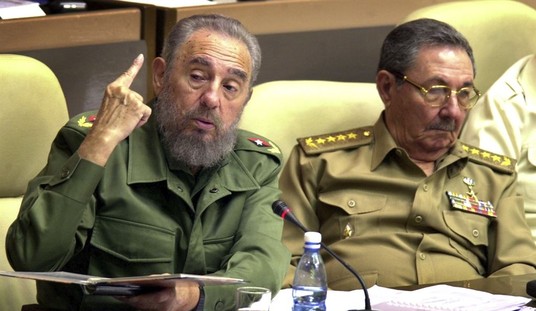Robert Kaplan describes the logic for negotiating with the Taliban in order to “make progress and find an exit strategy” in Afghanistan. But halfway through the article the reader will come to the realization that Kaplan isn’t talking about the War in Afghanistan at all, but about something much larger: Pakistan, India, Pashtunistan, the Great Game. The discussion is about the Taliban only in the sense that when you talk about a dog, it necessarily includes the tail. Kaplan places the origins of the Taliban in Islamabad — and the region.
Remember, it wasn’t radicals burrowed deep within the ISI who made the decision to help bring the Taliban to power in the mid-1990s: it was the democratically elected government of the western-educated Benazir Bhutto who did that, on the theory that the Taliban would help bring stability to Afghanistan. This history indicates the degree to which talking to the Taliban has broad support within the Pakistani political establishment.
The Pakistani military and political establishment both view Afghanistan through the lens of their conflict with India. When they look to the west they envision an “Islamistan” of Afghanistan and other Central Asian countries with which to face off against Hindu-dominated India to Pakistan’s east. Afghan President Hamid Karzai, with his pro-western and pro-Indian tendencies, gets in the way of this Pakistani vision. But even if Pakistan were to come to terms with Karzai, it would still need to have lines of contact with all Afghan groups, including the Taliban….
Sugata Bose, a history professor at Harvard, in 2003 described the Pakistan-Afghanistan frontier area as “historically no frontier at all,” but the very “heart” of an “Indo-Persian and Indo-Islamic economic, cultural, and political domain that had straddled Afghanistan and Punjab for two millennia.” The fact, which we all keep repeating, that there is no solution for Afghanistan without a solution for Pakistan, is itself an indication of the extent to which both countries are joined. This makes it even more crucial for the ISI to maintain contacts and highly developed networks with all principle Afghani political and guerrilla groups.
You can see where this is going. The idea is to resolve The War in Afghanistan in the framework of some grander regional bargain which will ‘suck the life’ out of radical groups like al-Qaeda. Where have we seen this before? Veterans of the Bush Administration, who were reviled for accepting the doctrine that terrorism was largely state-supported or state-enabled, may now be watching a revival of their doctrine under a new brand name: shut down the state support for terror with diplomacy and voila! once you mop up the puddle it won’t come back. Except this time, the job is going to be accomplished not by a demonstration of military action, but a still undetermined combination of demonstrations of resolve and diplomacy. But since the Bush doctrine was never wholly reliant on arms and never completely without diplomacy, what this probably means is that the Obama administration simply means to alter the proportions between these two ingredients. They are going to get their chance to try out the new approach. How they will fare only the future will show.








Join the conversation as a VIP Member